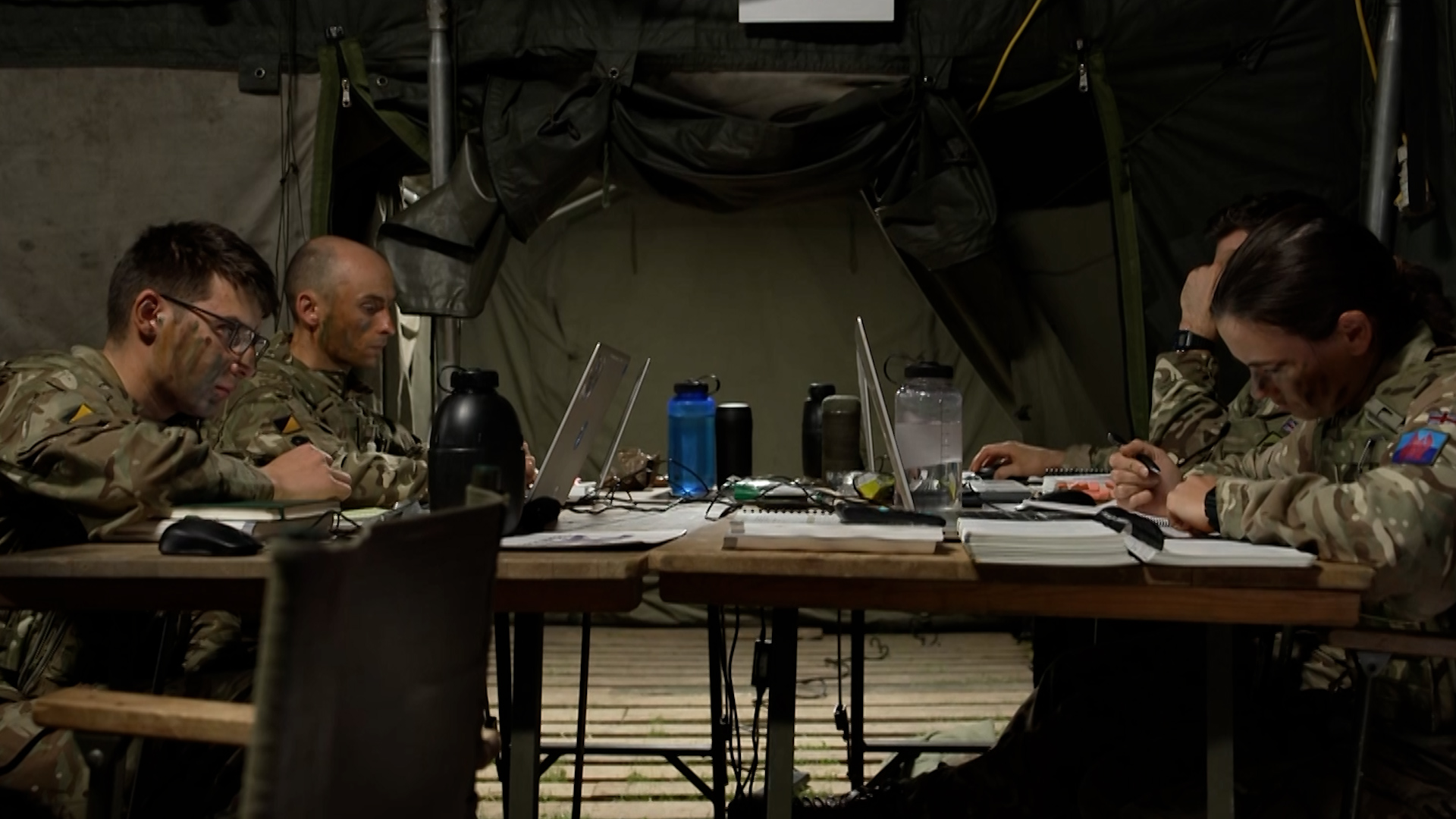British Army goes 'back to the future' with renewed focus on Combined Arms Manoeuvre
The war in Ukraine is taking the British Army "back to the future", according to the Director of Land Command.
Brigadier Karl Harris has been speaking about a renewed focus on Combined Arms Manoeuvre and a new course for Army captains designed to improve understanding and familiarity with this way of warfighting.
The five-week-long Captains' Warfare course has been entirely dedicated to the warfighting technique that is very much back in favour in the British Army, with the new final exercise involving 52 students from a wide range of different specialisms having to work together to take on the enemy.
Captain Phill Birkett, OC Workshops 29 Commando Regiment Royal Artillery, said: "There's a conventional force crossing an international border, so we've had a fair few defences where we've had to stop enemy penetrating through, pretending they're getting to places like Salisbury.
"Most recently we've been pushing them around past Bath, and pushing them back into Bristol is the aim."
The invasion of Bath and Bristol was just an exercise and not a live military operation, but the war in Ukraine has focused minds on the clear and present danger presented by Russia, and a desire to re-visit what were once standard Cold War tactics.

'Back to the future'
Brig Karl Harris, Director of Land Command and Staff College, told Forces News: "This is a little bit of 'back to the future'. This is something that I recognised from 20 or so years ago when I was in a similar position to our students now.
"It's reinvigorating and relearning some of what it is that we have needed to focus on, but also exploiting the technologies, the synthetic rap, the priority that we've afforded this within the Field Army."
The Army has acknowledged that its familiarity with Combined Arms Manoeuvre took a backseat during the years dominated by counter-insurgency in Iraq and Afghanistan.
The training being done as part of the Captains' Warfare course in Wiltshire seeks to change that.
And although the fieldwork is still in a trial phase, the expectation is it will be rolled out across the board in 2024.









